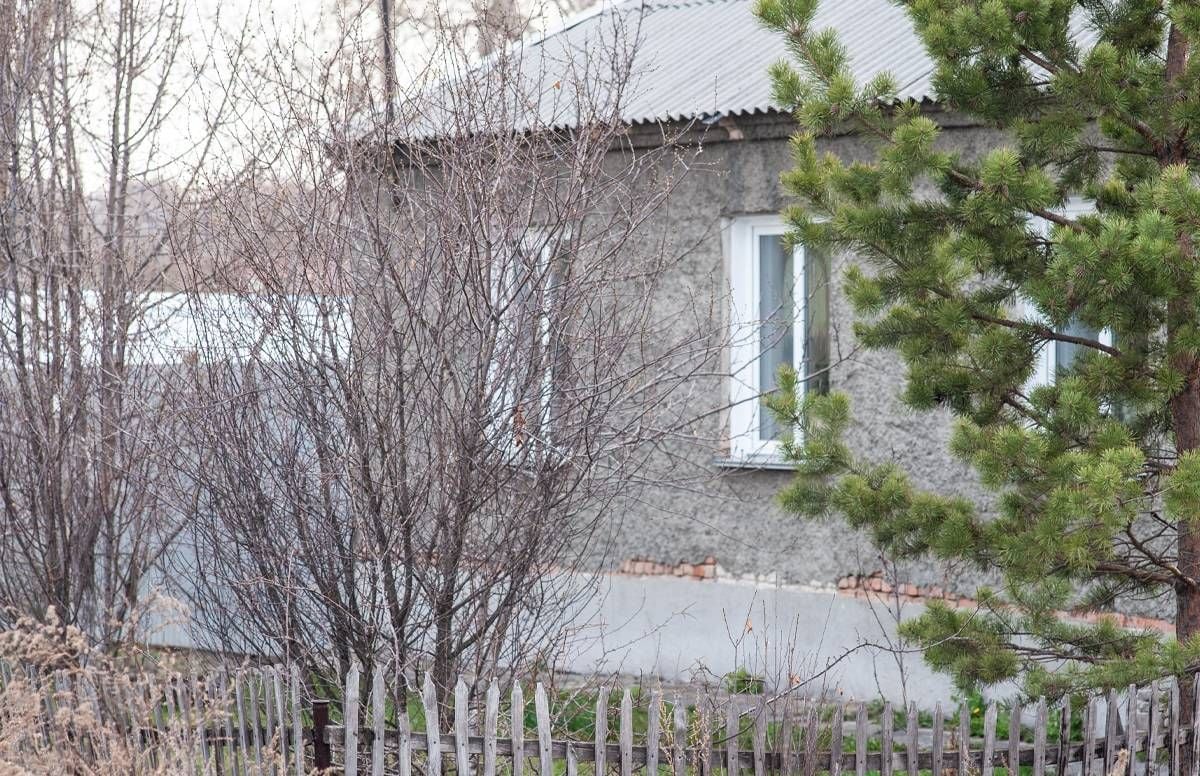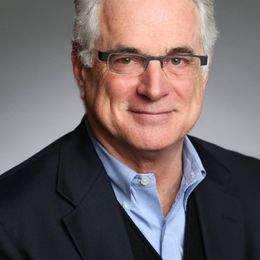How Reverse Mortgages Backfire in Low-Income, Minority Neighborhoods
Why foreclosure rates there have been high and could rise again
Carl Abrams has owned his Minneapolis home since 1989. Now 78, about four years ago, he took out a reverse mortgage — that's a loan for people 62 and older that turn a home into cash before they move or die. "I'm getting old, didn't have a job, so didn't have any savings, so I had to do something," he says.

With a reverse mortgage, the homeowner remains responsible for paying property taxes, homeowner's insurance and maintenance costs. If those payments aren't made in a timely fashion, the home can go into foreclosure.
Problem was, Abrams wasn't aware he needed homeowner's insurance. His reverse mortgage servicer had force-placed insurance on his home when he wasn't paying for it. But after a fire in his basement, the servicer started foreclosure because of Abrams' lack of insurance and nonpayment of property taxes.
Brittany McCormick, a consumer attorney at Minneapolis-based Mid-Minnesota Legal Aid, got him onto a repayment plan instead. Abrams took two years to pay it off —sending in an extra $209 a month and finishing up last December.
"I almost lost the home," he says. "It's been tough."
Foreclosure Rates for Reverse Mortgage Borrowers
Many low- and moderate-income homeowners with reverse mortgages, especially in minority neighborhoods, aren't so lucky.

Homes owned for 30 or 40 years can be swiftly foreclosed on after falling behind on taxes and insurance payments. "Nine times out of ten, its [unpaid] property taxes," says McCormick. "The home is their only asset."
A USA Today investigative report last year found that following the Great Recession, nearly 100,000 reverse mortgages failed, "blindsiding elderly borrowers and their families and dragging down property values in their neighborhoods."
A USA Today investigation found that low-income minority communities were most impacted by predatory reverse-mortgage lending.
And, the investigation found that low-income minority communities were most impacted by predatory reverse-mortgage lending; often, the loans were sold through aggressive door-to-door pitches, USA Today said. Reverse mortgages ended in foreclosure six times more often in predominantly Black neighborhoods than in neighborhoods that are 80% white, the reporters said.
The borrowers who went into foreclosure in some cases lost their homes due to small debts for property taxes or loan servicing errors.
Even if a relatively small amount is owed, "you could lose your home," says Joanne Savage, senior staff attorney, AARP Legal Counsel for the Elderly.
Losing a Home Over a $3,000 Problem
Adds Matthew Hulstein, supervising attorney at Chicago Volunteer Legal Services: "Whatever the reason — mental health, not budgeting — we see foreclosure cases for $3,000, $4,000, $5,000. No one should lose their home over those sums."
Sums like that almost cost another of McCormick's clients her home. A retired musician and teacher, she had a reverse mortgage on her home, which she had also turned into an Airbnb to pay her rising property taxes. Her Airbnb business dried up with the pandemic.
She asked the company servicing her reverse mortgage if she could delay paying the taxes, since the Internal Revenue Service had pushed back the filing date for income taxes this year because of COVID-19. The servicer said it would make her next property tax payment if she'd sign on to a repayment plan. The next thing she knew, her servicer declared that since she hadn't paid her property taxes, she had to pay off her loan in full or go into foreclosure.
McCormick resolved the "stupid error" on the part of the servicer with a few quick phone calls. Crisis averted and apology accepted. "Luckily she knew someone who knew me," says McCormick.
The Government Accountability Office in 2019 said 8,800 reverse mortgages in foreclosure from 2014 to 2018 had unpaid property charges of under $2,000.

You've probably seen television pitches for reverse mortgages by celebrities like Tom Selleck, Henry Winkler and the late Fred Thompson. The amount that can be borrowed and the cost of the loan depends on a borrower's age, interest rates and the value of the property. The homeowner can get the reverse mortgage money as an upfront payment, an ongoing monthly payment or a line of credit.
Economists have long extolled the promise of reverse mortgages to boost income for retirement-age households. Many older homeowners own significant equity in their homes. The housing wealth of homeowners 62 and older hit a record $7.7 trillion in the second quarter of this year, according to the National Reverse Mortgage Lenders Association.
The Pandemic and Reverse Mortgages
But a lack of retirement savings is a critical problem among low-to-moderate income households and the pandemic recession has only worsened their prospects for a financially comfortable retirement. So, reverse mortgages (for those who own homes) can be extremely tempting.
Only 33,000 reverse mortgages were originated in 2018, though, according to The Urban Institute think tank. That's a mere 1.3% of the 2.5 million loans homeowners took out to extract equity through credit lines, cash-out refinancing and home equity loans. Overall, more than 1.19 million households have taken out the government's Federal Housing Administration-insured reverse mortgages to help them meet their financial needs.
"We live in a world where [reverse mortgages work] for a small group of people," says Ira Rheingold, executive director of the National Association of Consumer Advocates in Washington D.C.
Problem is, reverse mortgages remain a complicated, confusing product that come with high upfront fees and the risk of foreclosure. The risks are especially worrisome for lower-income homeowners whose finances are so fragile, they run the risk of missing payments of property taxes and homeowner's insurance.
Mandatory counseling sessions before taking out a reverse mortgage help, but the sessions are brief.
Why Lower-Income People Have Higher Reverse Mortgage Foreclosure Rates
Thomas Davidoff, professor of real estate finance at the UBC Sauder School of Business in Vancouver, told me about a conversation he had on a flight with a seatmate from Florida who'd taken out a reverse mortgage. She was the only one among her friends who had.

When Davidoff asked her why, she said that "she was the only one who could figure it out and the only one without kids," he recalls. (Davidoff inspired this column when he remarked while moderating a panel at the 2020 annual meeting of the Retirement Research Consortium — a gathering of retirement experts — that there was evidence about the preponderance of problems with reverse mortgages in low-income communities.)
Not being able to pass on the home to heirs is a source of misunderstanding among lower-income, reverse-mortgage borrowers.
Many people in low-income communities live in multigenerational homes. For them, building generational wealth — passing the home on to the next generation — is an important goal. "What we hate to see is homeowners enter into a reverse mortgage without realizing it won't pass it on to heirs. The heirs can rarely afford to refinance or pay off that value," says Savage.
Adds Odette Williamson, staff attorney at the National Consumer Law Center in Boston: "So when grandma loses the home, the daughter and others also lose the home."
While reverse mortgages can be a helpful source of retirement income for some, the risks can be serious for older, low-income borrowers.
The Foreclosure Threat in 2020 and Beyond
Will the pandemic lead to a rise in reverse mortgage foreclosures and more pain for low-income borrowers with the loans?
For now, the foreclosure threat is negligible. That's because of the federal government's pandemic-induced foreclosure moratorium that lasts through year-end. But once the moratorium lifts, analysts say, reverse mortgages will almost certainly shoot up.
Other reverse mortgage reforms in recent years have made the loans safer than before, however.

For example, to qualify for a reverse mortgage, there's now an affordability test to see if you are likely to be able to continue making the required payments. If not, some of the money you'd borrow goes into a special fund to meet those expenses.
Democratic Representatives Maxine Waters of California and Denny Heck of Washington have sponsored legislation to help prevent reverse-mortgage home losses by requiring lenders to do more to prevent foreclosure.
"A reverse mortgage isn't inherently bad, and they're safer than they used to be," says Hulstein.
But the reverse mortgage still has a long way to go before it becomes a standard choice for the typical retirement-age homeowner.


